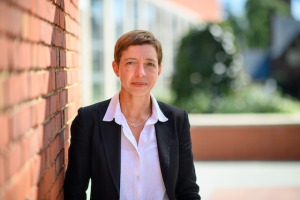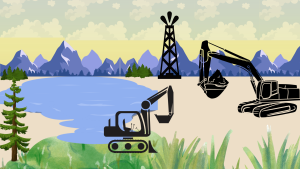
“Choose a job you love, and you will never have to work a day in your life.” It’s a quote I’ve heard countless times, but I never really stopped to think about its meaning until recently. Growing up, we’re constantly asked what we want to be when we grow up, as if there’s one perfect job out there waiting for us to discover. For years, my answer was simple: “A scientist!”
In high school, I was determined to be a chemist. However, as I’ve navigated college, my career path has shifted not once but about 15 times—sometimes in just a matter of weeks. When I first stepped onto my college’s campus, my mind was set on forensics and then on becoming a doctor. Soon enough, I realized that I hated biology, and, just like that, another plan was scrapped. That’s when I started asking myself, “Why did I feel so drawn to science in the first place?”
Research by Jahn and Myers in “Vocational Anticipatory Socialization of Adolescents: Messages, Sources, and Frameworks That Influence Interest in STEM Careers” suggests an answer. The authors look at Vocational Anticipatory Socialization (VAS), which they define as the kinds of messages that young people receive, the sources of these messages, and the frameworks through which adolescents understand these messages.
Jahn and Myers argue that “parents, career insiders, and media communicate most VAS messages related to math, science, and STEM-based careers.” Maybe I wasn’t passionate about science; I had just been conditioned to believe it was the right choice.
Looking back, I realized my struggle wasn’t about choosing between career paths; it was about unpacking the fears and expectations that had shaped my choices in the first place. If I had been conditioned to see science as the right choice, what did that mean for the things I truly loved?
I had convinced myself that pursuing art would be a mistake. After all, how could I possibly make a living from something I loved? And what would my family think if I didn’t follow a more traditional, secure career? Even though my family has supported my artistic endeavors from the start, I still felt this fear that my passion might never be enough to pay the bills.
And yet, when I look around at the world, I realize so many people are living proof you don’t have to choose between passion and paycheck. Take Walt Disney for example—he started as an illustrator and storyteller, transforming his love for animation into one of the most influential entertainment empires in the world.
And I know what you might be thinking: He was just one of the lucky ones. But luck had little to do with it. According to Eudie Pak’s Walt Disney’s Rocky Road to Success, Disney faced countless setbacks before creating “the Happiest Place on Earth,” including “[b]ankers reject[ing] the concept of his famous mouse over 300 times before one said yes.”
All around us, people are turning hobbies into thriving careers, proving passion and financial success don’t have to be mutually exclusive. Yet, it’s easy to believe following your passion isn’t practical when society, and even our own internal voices, prioritize a steady paycheck. Money may not buy happiness, but it can solve problems, which is why a high-paying job is appealing. Still, what if a career could offer both stability and passion? What if fulfillment didn’t have to come at the cost of financial security?
Here’s what I’ve come to realize: A career doesn’t have to be a rigid choice between passion and security. It can be a journey—one where we explore, adapt, and redefine success on our own terms. We often think we need everything figured out early on, but that’s the myth. Instead of forcing ourselves into a predetermined path, what if we gave ourselves permission to keep searching?
I still don’t know exactly where my career will take me. And that’s okay. What matters is that I’m no longer afraid to embrace uncertainty and chase both passion and purpose.
So, when we hear the phrase, “Choose a job you love, and you’ll never work a day in your life,” let’s remember that it’s not that simple. Passion and paycheck don’t always align perfectly, but they don’t have to be opposites either. We may not have all the answers yet, but we understand that figuring it out is part of the journey.
And, who knows, maybe one day I’ll make a living with my art. But for now I’ll keep exploring, and that’s perfectly okay.
The opinions on this page do not necessarily reflect those of The Sandspur or Rollins College. Have any additional tips or opinions? Send us your response. We want to hear your voice.







Comments are closed.